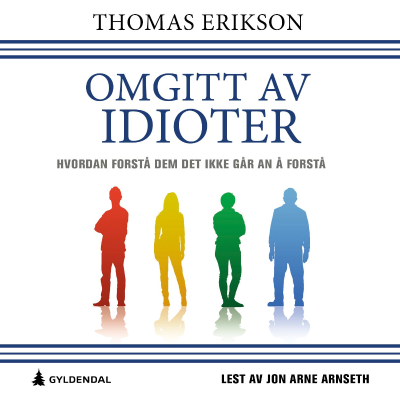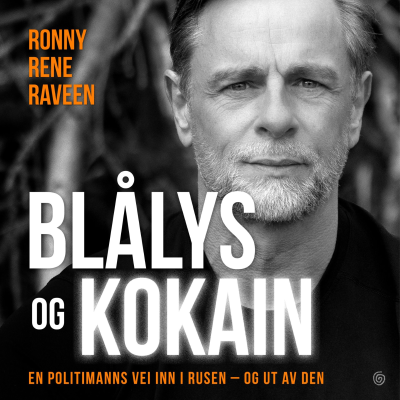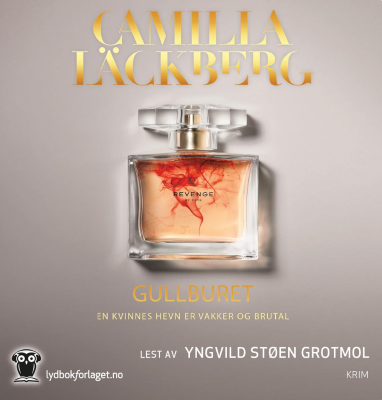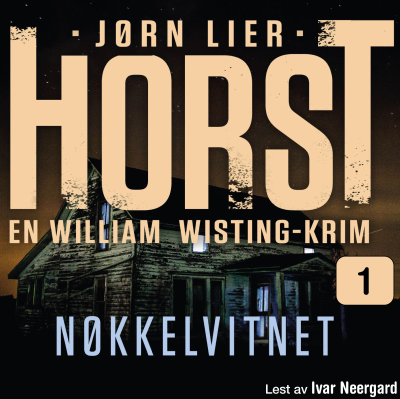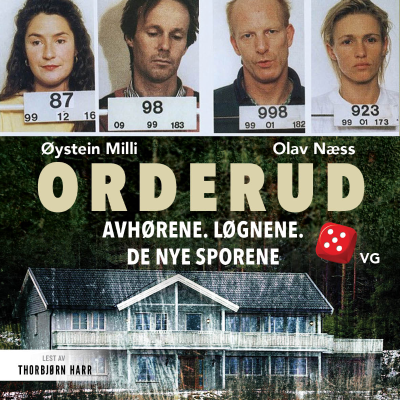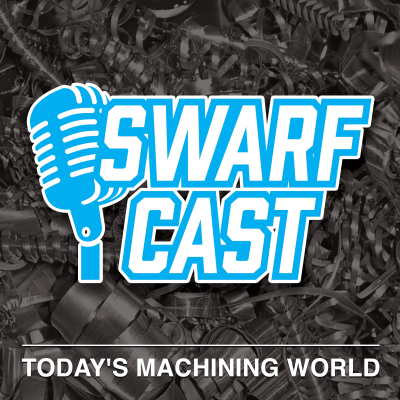
Swarfcast
engelsk
Teknologi og vitenskap
Prøv gratis i 60 dager
99 kr / Måned etter prøveperioden.Avslutt når som helst.
- 20 timer lydbøker i måneden
- Eksklusive podkaster
- Gratis podkaster
Les mer Swarfcast
Noah Graff, used machine tool dealer and editor of Today’s Machining World, interviews machining company owners, equipment gurus, and experts with insight to help and entertain people working in the machining field. We discuss topics such as how to find quality employees, customer acquisition, negotiation, and the best CNC equipment options for specific jobs.
Alle episoder
279 EpisoderProducing Tiny Parts with a Tiny Workforce on Swiss, with Dan Rudolph–EP 111
Today’s interview is an old favorite. It’s a story about a young entrepreneur and his father producing minuscule parts with no other employees than themselves and Dan’s wife. On today’s podcast we continue our season about Swiss machining. Our guest is Dan Rudolph, co-owner and founder of Rudolph LLC [http://rudolphmicro.com/]. Rudolph LLC produces medical parts as small as .1 millimeter on Citizen lathes. The company has only three staff members, Dan, his wife, and his father, but Dan says he has no plans to hire employees and the company continues to grow. Scroll down to read more and listen to the podcast, or listen with Apple Podcasts [https://podcasts.apple.com/us/podcast/producing-tiny-parts-on-swiss/id1405366897?i=1000507782240] or your favorite app. Dan describes Rudolph LLC. The company produces medical device components particularly for eye surgery. It manufactures mainly stainless steel and titanium components on Citizen Swiss lathes. The company has eight machines and plans on adding several next year. It also has various secondary and finishing equipment, as well as Universal Robots [https://www.universal-robots.com/]. (3:00) Dan says when the company started he and his father gravitated toward smaller parts that required smaller sized equipment. They had no employees, and the company started in a 900-square-foot shop. Now it has a second 900-square-foot room available for machinery, and a second floor for finishing equipment. (3:50) Dan talks about his career path. Growing up, his father was a supervisor for a Swiss department at an eye surgery OEM. In the evenings he ran a small foundry that did brass castings. Dan often tagged along with his father to the foundry as a kid. He attended Penn State for industrial engineering and worked in foundries after college, but decided that career path wasn’t what he was looking for. He and his dad had been talking about starting a medical Swiss shop together for a while because his father had knowledge of the industry and good contacts from his former company. Dan says since he was young he had an affinity for the elements involved in running CNC Swiss machines—a lot of moving parts, math, and computer programming. (5:30) Dan says his dad prefers a supervisory role as well as handling quality and secondary operations, while he loves running production and setting up machines. (9:45) Dan says the smallest part Rudolph LLC runs is .1 millimeter. The company does a lot of work with thin-walled parts (.002” thick). They drill holes as small as .007” in diameter in stainless or titanium. (10:40) Dan says often he sees working on small parts as “imagining a half inch part but in a smaller world.” Though, he says often with very small parts the bar stock can break off in production. He says when he is working on very small parts he breaks up the work. He will turn a few features and then stop the machine to see what’s going on. Sometimes he will program the sub-spindle to grab the part just to make sure he can find it. He says when the parts are in the sub-spindle you sometimes have to use a razor blade and fish them out. He says for a lot of the parts after the sub-spindle picks them off he opens the collet and then an air blower puts them into jars or tubes. Then he evaluates them using a vision system or other measuring system. (11:30) Dan says Rudolph LLC’s shop is located on what used to be a farm. The barn has been replaced by two 900-square-foot garage-type buildings. The company started in one of the garages and then when it grew took over the second garage and connected the two. Then they built second a floor on top. His father’s house is located across the driveway from shop. (14:30) Dan talks about his wife leaving her CPA job to join he and his dad at the company. She has been shadowing Dan’s father so she can eventually take over his role as he gets closer to retirement. (16:00) Noah asks Dan, how he can “replace himself?” What happens if he needs to step away from the business for some reason, or go on vacation? (17:45) Dan says when he and his dad founded the company they decided they didn’t want to be “people managers.” He jokes that people at other shops warned them against the complications and headaches that come with hiring a lot of employees. He says that he and his dad prefer doing the actual production work. Automating with Universal Robots for secondary operations and Swiss machining that can finish an entire part enable the company to function and thrive without requiring extra manpower. He says in 2021 the company is not taking on new customers and instead trying to improve the work it does currently. (18:45) Dan says one of the main things he wants to improve upon is reducing the rough edges on parts. He wants them cleaner with less burrs and loose material. Increasing his quality consistency will mean spending less time at the microscope troubleshooting. (22:15) Noah asks how Dan how he is able to come up with new ideas and solutions if he is continuously busy producing parts. Dan says being spread thin is a constant obstacle, but even so, he and his father do not want to hire help. He says if they can perfect the work themselves they won’t need to hire anybody. He says his wife has been a huge addition to the company because she knows how he thinks, so she can help solve problems without creating a new problem of people management. She takes on some of the work, which has smoothed out the operations such as shipping and running the Universal Robots. (22:50) Noah asks Dan if he has advice for someone else who wants to start small shop similar to his. Dan says he can’t fathom starting a shop without at least one other person because with two people you can divide the work between your strengths and weaknesses. (25:15) Dan says he sees his company’s mindset as a game to see how much he and his dad can do within their constraints. He says having limited space is advantageous because walking around a big shop takes time. (26:00) Dan says something interesting he learned last week was his research on various ways he can renovate his home’s deck. He says he has spent time searching on Instagram for photos of work done by contractors. (28:00) Dan says social networking on Instagram has been beneficial for him. It has given him a peer group of other people in the machining world, which he lacks in his own 3-person company. He says his Rudolph LLC has even gotten some customers from Instagram. (29:30) The post Producing Tiny Parts with a Tiny Workforce on Swiss, with Dan Rudolph–EP 111 [https://todaysmachiningworld.com/swiss-machining-dan-rudolph/] first appeared on Today’s Machining World [https://todaysmachiningworld.com].
How a $2 Million Dollar INDEX Multi-Spindle MAKES You Money, Richard Kingsbury-EP 229
Why would anybody buy a CNC multi-spindle for $2 million? Or $3 million for that matter? My guest on today’s podcast, Richard Kingsbury, has the answer. Richard is Managing Director of the Kingsbury Engineering Division, England’s INDEX distributor [https://kingsburyuk.com/]. In this interview, Richard gives a history lesson of screw machining. We discuss how you sell a $2 million dollar CNC multi-spindle. Most importantly, we talk about how a machining company can make lots of money with these Ferraris of multi-spindles. I know, I should call them Porsches as they’re made in Germany. In any case, INDEXs are so choice! If you have the means, I highly recommend picking one up. *********** Listen on your favorite podcast app using pod.link. [https://pod.link/1405366897/episode/de9ffe08f8ace1c40b2a7fa52dffafb5] Listen on Apple Podcasts [https://todaysmachiningworld.com/wp-content/images/podcast_apple.svg]https://podcasts.apple.com/us/podcast/how-a-%242-million-dollar-index-multi-spindle-makes/id1405366897?i=1000674864475 Listen Spotify [https://todaysmachiningworld.com/wp-content/images/podcast_spotify.svg]https://open.spotify.com/episode/7lQlwnWUL0eaWGhzGAR3Yb View the podcast at the bottom of this post or on our YouTube Channel [https://www.youtube.com/user/TodaysMachiningWorld/videos] Follow us on Social and never miss an update! Facebook: https://www.facebook.com/swarfcast [https://www.facebook.com/swarfcast] Instagram: https://www.instagram.com/swarfcast/ [https://www.instagram.com/swarfcast/] LinkedIn: https://www.linkedin.com/company/todays-machining-world [https://www.linkedin.com/company/todays-machining-world/?viewAsMember=true] Twitter: https://twitter.com/tmwswarfblog [https://twitter.com/tmwswarfblog] ************* Link to Graff-Pinkert’s Acquisitions and Sales promotion! [https://graffpinkert.com/graff-pinkert-acquisitions-and-sales] ************* INTERVIEW HIGHLIGHTS KINGSBURY’S ORIGINS In 1945, a bankrupt Germany was forced to pay reparations to the allies in the form of intellectual property and capital equipment. INDEX’s products and designs were assigned to BSA Tools, a British company, with rights to sell these machines for 10 years (1945-1955) During this period, George Kingsbury (Richard’s grandfather) ran a subcontract shop that used both BSA-built INDEX machines and original INDEX machines. He quickly recognized that the original INDEX products were of superior quality. Sensing an opportunity, he developed a plan to become Index’s distributor when BSA’s rights expired in 1955. To demonstrate his commitment to INDEX, George sent his son (Richard’s father) to work at INDEX in Germany for nine months. When INDEX’s sales director visited the UK, George showcased his facility and then made a bold proposition over lunch: if INDEX would grant him exclusive distributorship rights for the UK and Ireland, he would immediately place a purchase order for 30 cam automatic machines, with 120 days to pay. The sales director couldn’t resist such a proposition, and the deal was struck. George returned to his office to inform his two sons that they had 120 days to sell 30 cam automatics. It was the beginning of Kingsbury’s relationship with INDEX, which continues nearly 70 years later as the second-longest-running Index dealership in the world, after only Japan. Today, Kingsbury has evolved into a diversified enterprise with three divisions: engineering (machine tools), timber, and property, employing 350 people and generating approximately $140 million in annual revenue. WHY INDEX CNC MULTI-SPINDLES MAKE SENSE OVER OTHER MACHINE TOOLS In our interview Richard made a great analysis of cam-driven multi-spindles like Wickmans verses modern CNC multi-spindles. He explained that while Wickman machines were excellent for high-volume commercial parts, they required highly skilled operators who could fine-tune them with copper hammers—a dying breed in today’s workforce. In contrast, INDEX’s CNC multi-spindles represent a technological leap forward, with each spindle independently driven and controlled. One of INDEX’s key innovations is their patented drum indexing system. Rather than continuously rotating in one direction (which would tangle the wiring), the drum advances five positions forward and then reverses for the sixth position. This solution allows for precise synchronization between operations and eliminates the need for slip rings used by competitors. The benefits of modern CNC multi-spindles are substantial. Richard demonstrated this with a complex stainless steel part that previously took 4.5 minutes to produce on a twin-spindle machine but now takes just 20 seconds on an INDEX multi-spindle. This dramatic improvement in cycle time helps justify the significant investment these machines require. As Richard puts it, “You’re taking a gun to a knife fight” when competing against shops running conventional machines like CNC Swiss or single-spindle lathes. While I agree with the Richard’s view that cam multi-spindles have fewer people qualified to run them nowadays, from my viewpoint as a used machinery dealer selling Acmes, Wickmans [https://todaysmachiningworld.com/can-you-still-turn-a-buck-with-a-cam-screw-machine/], and Davenports all over the world every year, I don’t see cam multi-spindles as completely obsolete in today’s world market. I know companies around the world, including in the U.S. making big money with cam multi-spindles that cost as little as $30,000. Many of those companies have a young workforce with the talent to run the older technology. SALES APPROACH SELLING INDEX MULTI-SPINDLES? When asked about his sales approach, Richard revealed that Kingsbury’s sales team has moved away from traditional feature-and-benefit selling toward a consultative method inspired by Sandler training. Rather than leading with technical specifications or price, they focus on understanding the customer’s problems and business goals. Their most successful sales are to entrepreneurial owner-managed companies that can make quick decisions, rather than corporations requiring extensive approval processes. A particularly interesting insight came from Kingsbury’s discussion of their selective approach to sales opportunities. Rather than pursuing every lead, they carefully qualify prospects through detailed conversations about their needs and motivations. As he explained, “If somebody asks us for our opinion, we’ll give it to them. We’ll try and understand their business. And if we think we can help, we will. And if we don’t, we will say we can’t.” The interview concluded with Richard emphasizing the importance of building genuine business relationships rather than being seen as “sniffy salesmen.” His approach focuses on becoming a trusted advisor who understands and addresses real business challenges rather than simply pushing products. Question: How have you made money using CNC multi-spindles? This blog was aided by claude.ai The post How a $2 Million Dollar INDEX Multi-Spindle MAKES You Money, Richard Kingsbury-EP 229 [https://todaysmachiningworld.com/how-a-2-million-dollar-index-multi-spindle-makes-you-money-richard-kingsbury-ep-229/] first appeared on Today’s Machining World [https://todaysmachiningworld.com].
Growing a Machining Business, with Dave Thuro (Part 2)–EP 27
Today’s podcast is Part 2 of our interview with Dave Thuro, second-generation owner of Thuro Metal Products. In this episode, Dave discusses his growth philosophies. He believes in aggressively acquiring as many job opportunities as possible, but then saying no to most of them. The company tries to acquire at least two long term accounts per year that will bring in monthly sales of $50,000 to $100,000. Scroll down to listen to the podcast with Dave Thuro. Dave also discusses his hiring practices. He believes in hiring the majority of his employees at the entry level and training them from within the company. The company’s 56 person workforce happens to be 50% women. Question: How does your shop go about acquiring new clients? The post Growing a Machining Business, with Dave Thuro (Part 2)–EP 27 [https://todaysmachiningworld.com/swarfcast-ep-27-dave-thuro-pt-2/] first appeared on Today’s Machining World [https://todaysmachiningworld.com].
How to Grow a Machining Business with Dave Thuro, (Part 1)–EP 26
We are going back to the archives this week with an interview from our first year of the show! Great story and great company. ********* Today’s podcast is part one of a two-part interview with Dave Thuro, second-generation owner of Thuro Metal Products, a successful job shop in Long Island, New York. The business produces parts for a variety of industries, including aerospace, fuel injectors, HVAC, bearing and linear and, more recently, optics and lighting. Scroll down to listen to the podcast. We spoke to Dave about his equipment choices, focusing on Swiss automatics and multi-turret CNC lathes. We also discussed his father’s journey from Yugoslavia, living in an old army barracks in Munich, Germany, as a refugee following World War II. He became a master machinist in Germany, before immigrating to the United States at the age of 23 and finally starting a machine shop of his own. Question: Which piece of equipment in your shop is your favorite? The post How to Grow a Machining Business with Dave Thuro, (Part 1)–EP 26 [https://todaysmachiningworld.com/swarfcast-26-dave-thuro-part-one/] first appeared on Today’s Machining World [https://todaysmachiningworld.com].
Why I Hired a Life Coach for My Machinists, with Tim Drinkwater–EP 228
I’ve interviewed a lot of interesting business coaches [https://todaysmachiningworld.com/how-to-think-like-an-entrepreneur-not-a-technician-with-steve-preda-ep-202/] for this podcast, and all the coaches had one thing in common. They focused on coaching a company’s owner or management, rather than working with everyone at the company. But my guest on today’s show, Tim Drinkwater, founder of Accurate Machine Products [https://www.ampcnc.com/] in Janesville, Wisconsin, hired a coach to be available for all eight of his employees. He says the coaching has provided his people with helpful guidance professionally and personally and has had a positive impact on his own personal growth. The interview really resonated with me as I personally have a number of coaches including a life coach, a podcast coach and a coach for building my LinkedIn presence. Along with discussing coaching, Tim talked about his company’s product line and his success finding new business on LinkedIn. ************* Listen on your favorite podcast app using pod.link. [https://pod.link/1405366897/episode/de9ffe08f8ace1c40b2a7fa52dffafb5] Listen on Apple Podcasts [https://todaysmachiningworld.com/wp-content/images/podcast_apple.svg]https://podcasts.apple.com/us/podcast/how-a-%242-million-dollar-index-multi-spindle-makes/id1405366897?i=1000674864475 Listen Spotify [https://todaysmachiningworld.com/wp-content/images/podcast_spotify.svg]https://open.spotify.com/episode/7lQlwnWUL0eaWGhzGAR3Yb View the podcast at the bottom of this post or on our YouTube Channel [https://www.youtube.com/user/TodaysMachiningWorld/videos] Follow us on Social and never miss an update! Facebook: https://www.facebook.com/swarfcast [https://www.facebook.com/swarfcast] Instagram: https://www.instagram.com/swarfcast/ [https://www.instagram.com/swarfcast/] LinkedIn: https://www.linkedin.com/company/todays-machining-world [https://www.linkedin.com/company/todays-machining-world/?viewAsMember=true] Twitter: https://twitter.com/tmwswarfblog [https://twitter.com/tmwswarfblog] ************* Link to Graff-Pinkert’s Acquisitions and Sales promotion! [https://graffpinkert.com/graff-pinkert-acquisitions-and-sales] ************* INTERVIEW HIGHLIGHTS The inspiration for Accurate Machine Products’ coaching initiative came from Tim Drinkwater’s personal experience with Score.org, a nonprofit organization providing mentorship to small business owners. After working with Score mentors for about a year, Tim recognized the value of having someone to talk to and provide accountability, which led him to explore ways to offer similar benefits to his entire staff. To find a suitable coach, he and his team interviewed several candidates from a coaching licensing organization. They selected a coach who was personable and easy to talk to, without a specific focus or platform. The chosen coach aims to help individuals sort through their life goals, making her approach more aligned with life coaching than traditional business coaching. The coaching sessions are entirely voluntary for employees, and Accurate Machine Products covers the cost, viewing it as an investment in their staff. Interestingly, Tim himself was not among the first to sign up, admitting he was initially hesitant due to the vulnerability required in opening up. The program is structured around monthly 30-minute phone sessions for each participant. The coach insists on a high level of confidentiality, to the extent that Tim is not privy to information about who is participating or what is discussed in the sessions, unless an employee voluntarily shares this information. Tim told me that his coach has helped him work through various challenges and has recommended books like “The Coaching Habit” by Michael Bungay Stanier. This book has provided him with tips on listening more effectively and helping others incentivize themselves, skills he finds useful both in managing his shop and in his volunteer work with high school students. While it’s difficult to quantify the direct impact of the coaching program on the business, Tim has received positive feedback from employees who find it helpful. He views the coaching as a way to invest in his people and improve their overall well-being, which he believes will ultimately benefit the company. Rather than implementing more traditional team-building exercises or corporate culture initiatives, Tim sees individual coaching as a way to improve the overall work environment by helping each employee grow personally and professionally. He summed up this philosophy at the end of the interview, telling me, ”When you’re a better you, everyone around you becomes a better them.” Question: If you could hire a world-class coach to help you excel in any aspect of your personal or professional life, what area would you want to improve? This summary was assisted by claud.ai. The post Why I Hired a Life Coach for My Machinists, with Tim Drinkwater–EP 228 [https://todaysmachiningworld.com/why-i-hired-a-life-coach-for-my-machinists-with-tim-drinkwater-ep-228/] first appeared on Today’s Machining World [https://todaysmachiningworld.com].
Velg abonnementet ditt
Premium
20 timer lydbøker
Eksklusive podkaster
Gratis podkaster
Avslutt når som helst
Prøv gratis i 60 dager
Deretter 99 kr / måned
Premium Plus
100 timer lydbøker
Eksklusive podkaster
Gratis podkaster
Avslutt når som helst
Prøv gratis i 60 dager
Deretter 169 kr / måned
Prøv gratis i 60 dager. 99 kr / Måned etter prøveperioden. Avslutt når som helst.
















